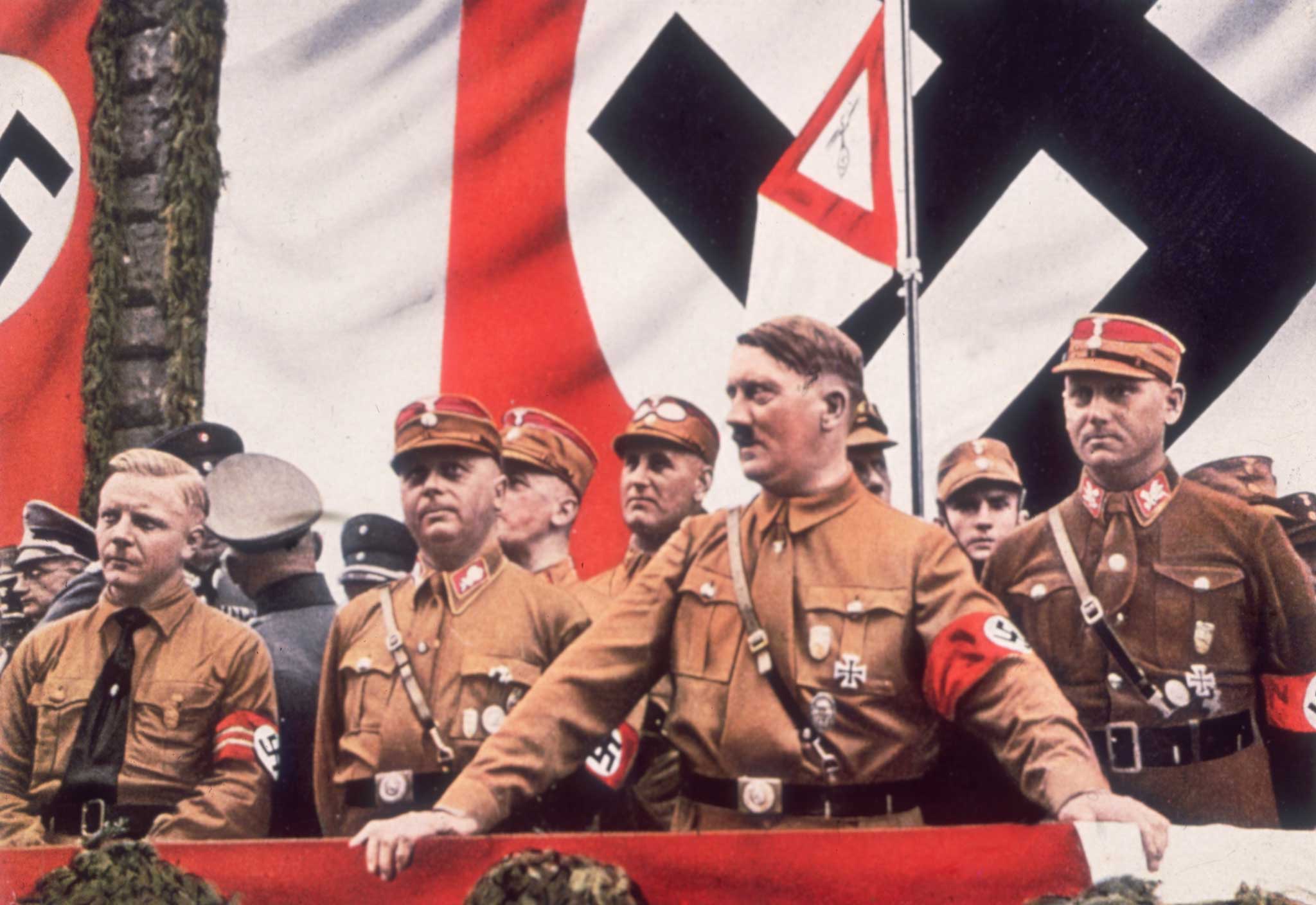Look Who's Back by Timur Vermes; Trans. Jamie Bulloch, book review

Be warned. This book is funny. Very funny. It is a rollicking farce, a comedic look at our obsession with celebrity, that the worldwide stage of social media and the internet make available to all – even a time-travelling Hitler who awakes on a piece of Berlin wasteland in 2011, dusts himself off and sets about discovering the state of the nation, the barometer of his German Volk, and how he can best use this second chance "Destiny has offered" him.
Yes, this is where it gets potentially uncomfortable, controversial and taboo-breaking: the story is narrated by the Führer and, while occasionally mellow, even congenial, he has not changed his fundamental tune. "The Jews are no laughing matter," he agrees without irony when picked up for a stand-up routine on a major German television channel. His appearance goes viral. A new career is launched.
This raises inevitable questions. May one laugh at material based partly in style and content on the vision of Mein Kampf? For, however clear it is that the supposedly sophisticated viewer in Merkel's Germany – flourishing, liberal-minded and worlds away from the deprivation and deep-seated problems of the Versailles Treaty from which the horrific phoenix of National Socialism rose – regards the material as a master-class in irony, this Hitler, too, is deadly earnest. Is he to be regarded through the same satiric lens as characters in the film The Producers? Is it permissible for writers to treat such material farcically? There is a tradition of sorts: Edgar Hilsenrath and Raphael Seligmann, both Jewish, did so, and there is the absurdist treatment of Hitler in Walter Moers's comic strip "Adolf, the Nazi Pig". Does Vermes earn his place in this company?
Yes, I would argue, for the novel's intentions are clear and threefold: to send up an aspect of modern society, our obsession with momentary fame and viewing figures; an encouragement to reflect upon whether such a figure could rise to any real power today – if so, where; and, quite simply, to entertain as a slick piece of unusual comedy.
The nub of Vermes's humour lies in the discrepancy between how "Hitler" regards himself and how he is perceived by others, as illustrated in his first encounter with his unlikely match of a Goth secretary in the production studio: "Her clothes were black, conspicuously so… Well now, there was no-one fonder of dark hues than I! I had always found it terribly dashing, especially on the S.S… but this young lady looked almost worryingly pale…. 'So,' she said, ignoring my questions, 'You must be Herr Hitler! L.O.L.!'". Talk of Lebensraum, daydreams of a new Wehrmacht, contrast with winks and broad smiles.
As with The Producers, a follow-up would seem redundant, and a spin-off TV series or movie would be taking the joke too far. But this unlikely comedy of manners, quite brilliantly translated by Jamie Bulloch, with its mischievous cover, should be available to an English readership as good, edgy comedy that provides food for thought alongside the belly laughs.
While it may be unsettling to find yourself agreeing with this Hitler as he ponders mobile phones, the aesthetic quality of cars, and bewilderment at the appeal of Jeremy Kyle-esque programmes, this laughter at the character can be enjoyed safe in the knowledge that "Mutti" Merkel, would be more than a match for this madcap creation.
Join our commenting forum
Join thought-provoking conversations, follow other Independent readers and see their replies
Comments